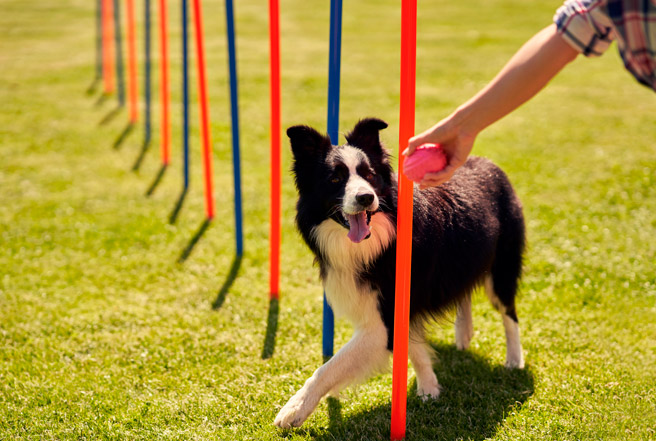Balancing electrolytes in your dog’s diet
Written by Zoe Russell, BSc (Hons)
Nutrition Officer, Skinner’s
What are electrolytes?

Electrolytes are ionized salts which circulate in the body and are critical for every-day functioning. Electrolytes which are of great importance include sodium, potassium, phosphorus, and chloride. In particular, phosphorus is a highly important electrolyte which can be found mostly in the bones (approximately 85%) while the rest circulates in the blood as phosphate ions.
Why are electrolytes important?
Electrolytes are involved in lots of the body’s day-to-day functions including nerve conduction, heart and skeletal muscle contraction, maintaining fluid balance, and maintaining blood pH. Electrolytes therefore have a range of functions and play supportive, yet crucial roles in the body. Without the presence of electrolytes, some biological processes cannot function. For example, phosphorus is responsible for energy metabolism and plays an important role in the functioning of nerves and muscle contraction.
You often see electrolytes in human sports drinks as electrolyte losses can be significant through sweating during exercise. The loss of electrolytes in dogs is less severe than in humans, although dogs can become dehydrated which can then unbalance their electrolyte levels. This can lead to problems such as rhabdomyolysis (muscle breakdown) and for dogs to collapse.
How can they be balanced in a diet?
The level of electrolytes in the body should naturally be maintained in healthy dogs. Exercise can affect the electrolyte balance in the body, although this does not necessarily indicate a need for supplementation. For example, potassium levels can drop following intensive exercise, but these levels should return to normal after a few hours recovery.
On the other hand, if a dog becomes dehydrated, then this can lead to an electrolyte imbalance. To minimise the risk of your dog becoming dehydrated, it’s important dogs always have a source of fresh, clean water to drink from. However, if you are concerned your dog is dehydrated, it’s important to seek immediate veterinary intervention.
Electrolyte disturbance can also be caused by certain health conditions which may disrupt the absorption, excretion and uptake of certain electrolytes. For example, vomiting and diarrhoea may decrease the intestinal absorption of electrolytes, so if you are ever concerned about your dog’s health then we recommend seeking veterinary assistance as soon as possible.
Do I need to supplement my dog’s diet?
When it comes to supplementing electrolytes there is a big difference between humans and dogs. Human sweat contains a lot of sodium, but due to the limited sweating in dogs, losses are far smaller. Furthermore, supplementing dogs with electrolytes like sodium can actually cause a drop in potassium levels, meaning adding supplements like salt can be counterproductive. Inappropriate supplementation of products not recommended for dogs is also not advised.
Overall, a complete diet with balanced levels of electrolytes provides all the nutrients your dog needs to establish, maintain and recover their electrolyte balance. Furthermore, diets such as our puppy range, sensitive range and Working 30 have all been specifically formulated to contain some chelated electrolytes which support absorption where the dog needs it most.
Contact us
If you need any more information about our diets, then please contact our nutrition team at nutritionsupport@skinners.co.uk or call us on 01379 384247.



